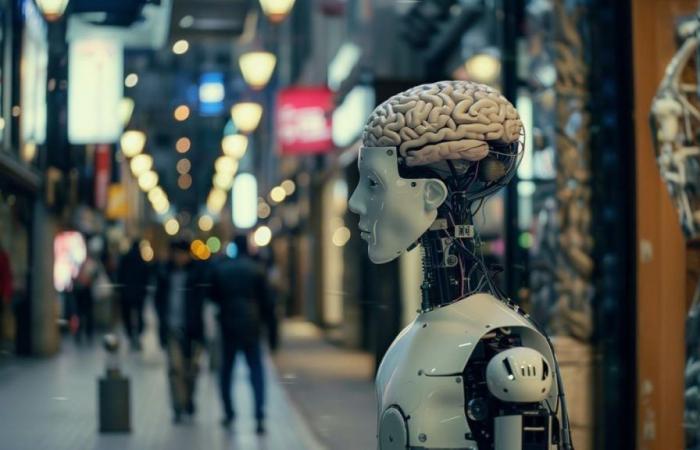Chinese researchers have successfully coupled lab-grown mini-brains to robots, allowing them to control their movements and actions. This technological feat paves the way for a new generation of more autonomous and intelligent robots.
A brain planted in a robot
Chinese researchers recently announced
a major and somewhat scary breakthrough in the field of artificial intelligence and robotics: the creation of a system allowing living mini-brains, grown in the laboratory, to control robots.
This innovation, called MetaBOC (Brain-On-Chip), paves the way for a new generation of robots with biological intelligence. The system is based on the use of brain organoids, tiny three-dimensional cellular structures that mimic the functioning of the human brain. These organoids are coupled to a microcontroller which serves as an interface between the biological brain and the robot.
With this architecture, brain organoids can learn and adapt to their environment, allowing the robot to acquire new skills such as navigation, obstacle avoidance and object manipulation.
Promising results
This approach could prove revolutionary for robotics by enabling the creation of more autonomous robots, able to make decisions and interact with their environment in a more natural way.
The results obtained by the Chinese researchers are promising, but there are still many challenges to overcome before the technology can be used on a large scale. One of the main obstacles is the need to keep the brain organoids alive and healthy, which involves developing complex and miniaturized life support systems.
Moreover, learning and adaptation of brain organoids remain slow and difficult to control processes. Researchers still need to refine training methods and stimulation to optimize the performance of robots controlled by these mini-brains.
What about ethics in all of that ?
The question is, does the future of AI lie in organic brains? The MetaBOC system opens up fascinating perspectives for the future of artificial intelligence and robotics. By combining the information processing capabilities of computers with the flexibility and adaptability of biological brains, This approach could give rise to a new form of hybrid intelligencemore powerful and more versatile than current systems. But inevitably much more worrying too.
The potential applications are thus numerous, ranging from the creation of more efficient robots for industry and medicine to space exploration and scientific research. However, this technology also raises important ethical and philosophical questions, notably on the nature of consciousness and intelligence, as well as on the limits of human intervention in the domain of living things.
So yes, these brains have no consciousness or feelings at the moment, but who says that this will not be the case in a few years?
It is essential to continue research in this area while engaging in in-depth reflection on the ethical and societal implications of these advances. The future of robotics and artificial intelligence will depend on our ability to master these technologies while respecting human values and preserving our environment.






